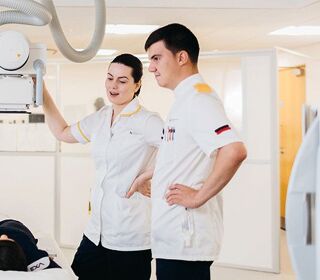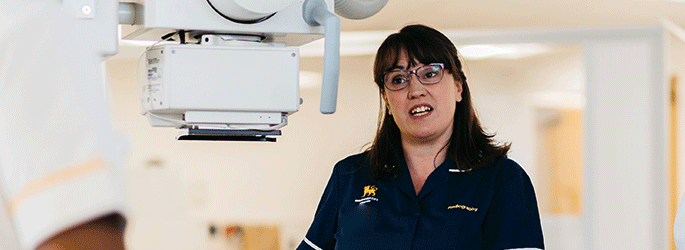
Blog

You’re interested in diagnostic radiography, taking and analysing images to allow diagnosis and assess the impact of treatment. But do you know about the range of specialist areas that will be available to you once your course is successfully complete?
1. Leadership/Management
As you develop throughout your career there will be plenty of opportunities to take on more responsibility and progress into a role of leadership, managing wider health contexts such as during periods of change and transformation of service delivery. You will develop skills that will allow you to act with confidence and autonomy within your own scope of responsibility.
2. CT practice
You can build upon the Computed Tomography (CT) skills you gain at undergraduate level. You can develop advanced knowledge and understanding in radiography, informed by current practice and research in the field of CT.
3. MRI practice
You can specialise in advanced level of knowledge regarding the physical principles of magnetic resonance imaging (MRI) and the safe use of gadolinium-based contrast agents. The clinical applications in the head and neck, abdomen, pelvis and vascular system, will enable you to practice MRI techniques contributing to the management of pathology.
4. Reporting radiographer
You can become champions in the specialism of reporting. Your actions, as reporters, will have a direct consequence on the management of patient care and will help ensure imaging departments are able to produce timely imaging reports.
5. Research
A broader approach related to “pursuing excellence” and “practice-led, knowledge applied” would allow you to develop your research ideas, leading you to challenge and critically evaluate the existing evidence base in your area of expertise.

6. Teaching
Following postgraduate study at Master’s level you could eventually be eligible to become a lecturer in all aspects of diagnostic radiography or of specific specialisms.